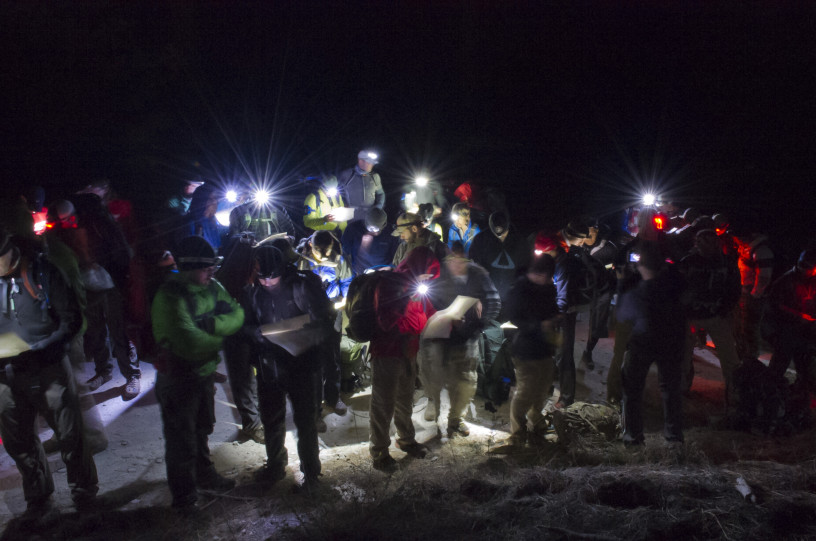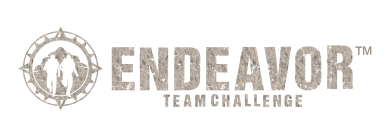BLOG ARTICLES
Through the Eyes – Jaala Thibault, Night Orienteering

Jaala Thibault competed in and finished the 2013 and 2015 Endeavor Team Challenge.
How would you describe Night Orienteering?
In 2015, there were a couple of large forest fires burning within 100 miles of Bear Valley, and the night of ETC there was a new moon. There was zero illumination and it was quite dry out in the forest, so with the light of our headlamps refracting off of dust particles kicked up from our foot steps, it felt like we were walking through a very dusty moon scape. The course was well thought-out and clear, however night orienteering is always difficult no matter how great the course is. Using the map and compass was only half the story; we needed to use terrain features as well because dead reckoning wasn’t an option with zero illumination. A couple of times when my teammate and I were close to a point, we’d stumble right into another team and giggle in the darkness, half because we were happy to see another team, half because we were glad the other team wasn’t a bear.
Have you ever navigated using only a map and compass before and what training did you do to prepare of orienteering?
Before 2013 ETC I had never navigated with a map and compass. My teammate and I took a navigation course with REI, read books about navigating, and practiced in the woods and park. With this self-study, we were able to complete and place high in both the day and night navigation. In 2015 the course had changed and things were set up to be a bit more challenging, but with the experience from 2013 and further brushing up on skills by reading, practicing, and watching youtube videos my teammate and I were able to do well.
How did night orienteering compare to day orienteering?
Night orienteering is more difficult than day orienteering because of visibility. You have to be more precise in pace counting and using terrain features at night, but it is definitely doable and fun if you have practiced!
How did fatigue factor into your night nav experience?
At one point we had linked up with a couple of other team and were just plodding along a fire road in silence for at least an hour. We were all so tired that we weren’t even counting steps or trying to find points, and I don’t think we even realized we were wasting time. I think all of us were sleeping on our feet, but we soon snapped out of it and went our  separate ways to continue finding points.
separate ways to continue finding points.
What would you recommend a competitor do to prepare for night nav?
Practice, practice, practice. To me it was of utmost importance to take a course, feel comfortable finding points during the day, and then try to practice at night too. If you aren’t able to practice at night, make sure you have read a lot about orienteering and have some strategies that you can use during ETC in the back of your mind.
